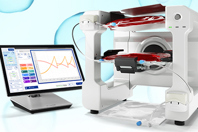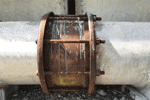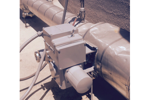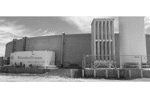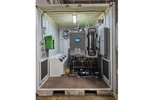Instrumentation
PRODUCTS
-
Nitrowave RF coaxial cables offer improved stability with flexure over time. The coaxial structure is designed to meet the demands of aerospace, defense, datacom, and many other growing markets.
-
Meaningful insights. Better results. Smarter utility management. Trimble Unity software platform offers a suite of applications and tools to support smart water management. Includes advanced workflows to map, manage, measure and improve asset performance.
-
Quick-Test adapters offer quick connect/disconnect with optional thread-on accuracy and self-alignment. They are available with 3.5mm and 2.4mm connectors up to 50 GHz.
-
Visualize continuous metabolic changes in cells in real-time and adjust cell culture conditions automatically for enhanced cell quality.
-
PHCbi brand's 10.4 cu.ft. (294 L) humidified plant growth chamber is designed to helps ensure highly accurate, reproducible chamber conditions. It allows for precise control of temperature, humidity, and lighting - making it ideal for drosophila breeding, diurnal growth studies, plant cell culturing and more. Robust cabinet construction with corrosion-resistant stainless-steel surfaces simplify cleaning and eliminate rust due to high humidity. It uses SNAP compliant, low flammability HFO refrigerants to assure low environmental impact.
WHITE PAPERS AND CASE STUDIES
-
Partnering For Precision In An IPF Study: Securing Timely Deliverables And Key Endpoints
A pharmaceutical company enlisted Worldwide Clinical Trials to help achieve on-time results for their Phase IIa IPF clinical trial, enabling them to manage vendors and meet challenging deadlines.
-
Implementing A Next-Gen MES At A Fraction Of The Cost
Discover how a top medical device manufacturer accelerated product launch by digitizing assembly processes, streamlining training, and ensuring compliance.
-
Duchenne Muscular Dystrophy Trial In China
A global sponsor conducting a Duchenne Muscular Dystrophy trial in China required reliable patient travel solutions to support children and families.
-
Quick And Easy Pipe Repair In Virginia Saves Thousands Of Dollars
Learn how JCSA efficiently replaced ten dresser-style couplings on a 16" steel pipe spanning a 600-foot bridge using the versatile HYMAX VERSA coupling, enabling a quick and cost-effective repair without removing the pipe.
-
Actuators On Aeration Blower Valves Improve Dissolved Oxygen And Increase Overall Process Stability
Discover how installing Beck electric actuators on the aeration blower control valves has improved process stability and plant operations for a South Florida treatment plant.
-
Accelerating Early Phase Oncology Study Development
Explore a close collaboration to co-develop a comprehensive, adaptive protocol designed to support key decisions across multiple trial phases for an innovative cancer therapy.
-
Changing The Clinical Feasibility Game With AI
AI is only as good as the data it’s built upon. Our customized AI platforms are constructed on a foundation of trustworthy, carefully curated data to produce detailed, expert-driven responses.
-
Enhancing Water Quality For Mountaire Farms
Mountaire Farms resolved their wastewater facility issues by replacing mechanical surface aerators with SDOX technology, saving $38 million and improving treatment.
-
Use Of Epiontis ID In A Phase 2 Psoriasis Trial
Mirikizumab’s Phase 2 trial explores IL-23 inhibition in psoriasis, measuring immune cell changes to assess its potential for long-term disease control and flare-up prevention.
-
Fort Worth Water Achieves Data-Driven Success With Xylem Technology
Read about a utility that reduced field investigations by 90%, enhancing operations and customer satisfaction with near real-time data.
-
Achieving Complete Destruction Of PFAS Using electraCLEAR Process
In early 2023, Lacks Enterprises Inc., a large automotive component supplier in the midwestern US, engaged Axine to address destruction of legacy PFAS compounds in wastewater from its manufacturing processes.
-
Supporting Participants Through National Travel Disruptions
A sudden travel shutdown threatened a critical clinical visit. Rapid rescheduling, coordinated logistics, and clear communication ensured engagement and the ability to continue without interruption.
NEWS
-
New Land Grant Research Detects Dicamba Damage From The Sky7/9/2025
Drones can now detect subtle soybean canopy damage from dicamba at one ten-thousandth of the herbicide’s label rate — simulating vapor drift — eight days after application.
-
Plants Don't Just Feel The Heat – They Decode It Through A Molecular Network6/13/2025
In a new framework that could reshape how we engineer crops for a warming world, scientists have revealed that plants don't rely on a single "thermometer" to sense temperature.
-
Stoichiometric Crystal Shows Promise In Quantum Memory7/7/2025
For over two decades, physicists have been working toward implementing quantum light storage—also known as quantum memory—in various matter systems.
-
AEON Biopharma Appoints Industry Veteran Rob Bancroft As Chief Executive Officer4/21/2025
AEON Biopharma, Inc. (“AEON” or the “Company”) (NYSE: AEON), a clinical-stage biopharmaceutical company focused on developing a botulinum toxin complex for the treatment of multiple therapeutic indications, announced today the appointment of Rob Bancroft as President and Chief Executive Officer, effective April 29, 2025. Mr. Bancroft will also join AEON’s Board of Directors.
-
Anritsu Supports Evaluation Of 5G NR NTN Devices For Satellite-Based Communications7/29/2025
Anritsu Corporation, a global leader in test and measurement solutions, is pleased to announce that its Radio Communication Test Station MT8000A, a measurement solution for 5G devices such as smartphones, now supports evaluation of 5G NR NTN devices for non-terrestrial networks (NTN), which enables communication via satellite.
ABOUT
Instrumentation
The science of measuring and controlling variables is termed instrumentation. As the name suggests, the process involves using a wide variety of instruments. These are classified as any device that can measure amounts that are physically quantifiable. These instruments do not have to be extremely complex in design. For example, the ruler is an instrument to measure distance, and a simple thermometer measures temperature.
Instruments specific to petrochemical processing include platinum Resistance Temperature Detectors (RTD’s), P/I Converters, many types of level meters, chromatographs, and continuous gas analyzers. These instruments are essential to the day to day instrumentation at petrochemical plants, as it is impossible to gauge to the necessary extent by estimation alone. Human error is inevitable, but an instrument can easily be calibrated or replaced.
Now that you understand the definition of and tools used in instrumentation, you should also understand the necessity of it. Temperature and pressure meters serve to ensure that the environment stays safe for both the chemicals being processed and the employees of the plant. Heat is a very well-documented activator in chemical reactions. If the temperature rises to unusual levels, this could spark an undesired chemical reaction that could prove catastrophic. The flow meter must measure how much oil is leaving the refinery, as it is a very volatile substance. Analytical instruments, such as the chromatograph, analyze the chemical make-up of the refined oil. This allows for the opportunity to make sure that the chemical make-up is correct, giving evidence that the process was correctly completed at all stages of refinement.




